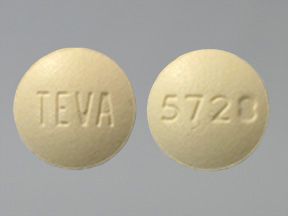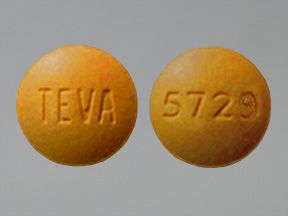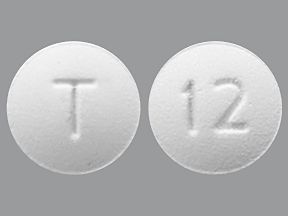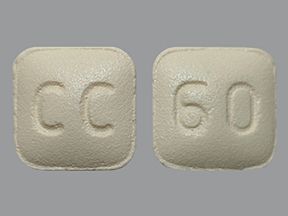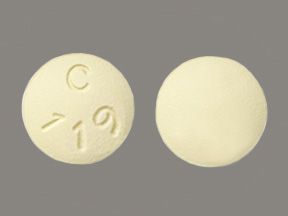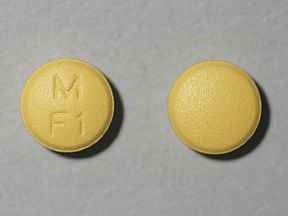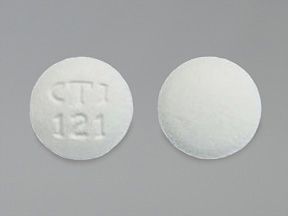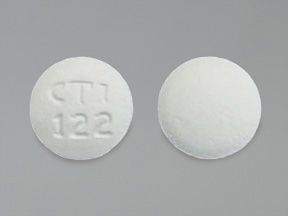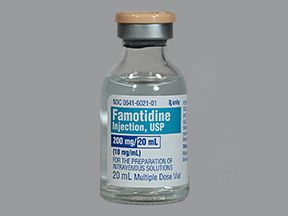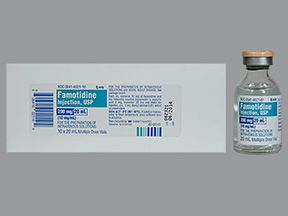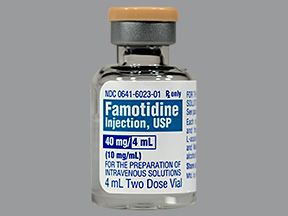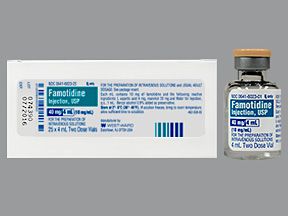- Prescription famotidine oral tablet is available as a generic drug and as a brand-name drug. Brand name: Pepcid.
- Prescription famotidine also comes as a liquid suspension you take by mouth, and in an injectable form that’s only given by a healthcare provider. Famotidine also comes in over-the-counter forms.
- Famotidine oral tablet is used to relieve symptoms of acid reflux and heartburn. It does this by reducing the amount of acid in your stomach.
Prescription famotidine oral tablet is available as a generic drug and as a brand-name drug. The brand name is Pepcid. Generic drugs usually cost less than the brand-name version. In some cases, they may not be available in all strengths or forms as the brand-name drug.
Prescription famotidine is also available as an oral suspension and an injectable form, which is only given by a healthcare provider. Famotidine also comes as an over-the-counter (OTC) drug. It comes as an OTC oral tablet and an OTC chewable oral tablet. This article focuses on the prescription oral tablet.
Why it’s used
Famotidine is used to relieve symptoms of acid reflux and heartburn. It does this by reducing the amount of acid in your stomach. It treats the following conditions:
- Gastroesophageal reflux disease (GERD). GERD happens when acid in your stomach backs up into your esophagus (the tube that connects your mouth to your stomach). This may cause a burning feeling in your chest or throat, a sour taste in your mouth, or burping.
- Acid-related damage to the lining of your esophagus. When stomach acid splashes up and into the lower portion of your esophagus, it can cause damage to the tissue cells in your esophagus.
- Duodenal ulcers. The duodenal area is the part of your intestine where food passes when it leaves the stomach.
- Stomach ulcers. Also known as gastric ulcers, these are painful sores in the stomach lining.
- Conditions where your stomach makes too much acid. These conditions include Zollinger-Ellison syndrome.
This drug may be used as part of a combination therapy. This means you may need to take it with other medications.
How it works
Famotidine belongs to a class of drugs called histamine-2 receptor blockers. A class of drugs is a group of medications that work in a similar way. These drugs are often used to treat similar conditions.
Famotidine works by blocking the histamine 2 (H2) receptor in your stomach. This receptor helps release acid in your stomach. By blocking this receptor, this drug lowers the amount of acid released in your stomach.
Famotidine oral tablet can cause mild or serious side effects. The following list contains some of the key side effects that may occur while taking famotidine. This list does not include all possible side effects.
For more information on the possible side effects of famotidine, or tips on how to deal with a troubling side effect, talk with your doctor or pharmacist.
More common side effects
The more common adult side effects for this drug are slightly different from the more common side effects for children.
- Adult side effects can include:
- headache
- dizziness
- constipation
- diarrhea
- Children under one year of age may also experience:
- agitation, unusual restlessness, or crying for no clear reason
If these effects are mild, they may go away within a few days or a couple of weeks. If they’re more severe or don’t go away, talk to your doctor or pharmacist.
Serious side effects
Call your doctor right away if you have serious side effects. Call 911 if your symptoms feel life-threatening or if you think you’re having a medical emergency. Serious side effects and their symptoms can include the following:
- Heart rate and rhythm problems. Symptoms can include:
- dizziness
- fainting
- shortness of breath
- irregular heart rate and rhythm
- Severe muscle problems. Symptoms can include:
- unusual muscle pain that you cannot explain
- weakness
- fever
- Neurological problems. Symptoms can include:
- agitation
- anxiety
- depression
- trouble sleeping
- seizures
- sexual problems, such as decreased sex drive
- Liver problems. Symptoms can include:
- unexplained or unusual weakness
- decrease in appetite
- pain in your abdomen (stomach area)
- change in the color of your urine
- yellowing of your skin or the whites of your eyes
- Skin problems. Symptoms can include:
- blisters
- rash
- mouth sores or ulcers
Famotidine oral tablet can interact with several other medications. Different interactions can cause different effects. For instance, some can interfere with how well a drug works, while others can cause increased side effects.
Before taking famotidine, be sure to tell your doctor and pharmacist about all prescription, over-the-counter, and other drugs you take. Also tell them about any vitamins, herbs, and supplements you use. Sharing this information can help you avoid potential interactions.
If you have questions about drug interactions that may affect you, ask your doctor or pharmacist.
The famotidine dosage your doctor prescribes will depend on several factors. These include:
- the type and severity of the condition you’re using famotidine to treat
- your age
- the form of famotidine you take
- other medical conditions you may have
Typically, your doctor will start you on a low dosage and adjust it over time to reach the dosage that’s right for you. They’ll ultimately prescribe the smallest dosage that provides the desired effect.
The following information describes dosages that are commonly used or recommended. However, be sure to take the dosage your doctor prescribes for you. Your doctor will determine the best dosage to suit your needs.
Forms and strengths
Generic: Famotidine
- Form: oral tablet
- Strengths: 20 mg, 40 mg
Brand: Pepcid
- Form: oral tablet
- Strengths: 20 mg, 40 mg
Dosage for duodenal ulcer
Adult dosage (ages 18 years and older)
- Short-term dosage: 40 mg taken once per day at bedtime for up to eight weeks. Your doctor may divide your dose into 20 mg taken two times per day.
- Long-term dosage: 20 mg taken once per day at bedtime.
Child dosage (ages 0–17 years, 40 kg [88 lbs.] or greater)
- Short-term dosage: 40 mg taken once per day at bedtime for up to eight weeks. Your doctor may divide your dose into 20 mg taken two times per day.
- Long-term dosage: 20 mg taken once per day at bedtime.
- Dosage changes: Your doctor may adjust your dosage and length of treatment based on how well you respond to the drug.
Senior dosage (ages 65 years and older)
The kidneys of older adults may not work as well as they used to. This can cause your body to process drugs more slowly. As a result, more of a drug stays in your body for a longer time. This raises your risk of side effects. Your doctor may start you on a lowered dose or a different dosing schedule. This can help keep levels of this drug from building up too much in your body.
Special considerations
People with moderate or severe kidney disease: Your doctor may decrease your dose of this drug by half or they may have you take one dose every 48 hours instead of every day.
Dosage for gastric ulcer
Adult dosage (ages 18 years and older)
- Short-term dosage: 40 mg taken once per day at bedtime for up to eight weeks.
Child dosage (ages 0–17 years, 40 kg [88 lbs.] or greater)
- Short-term dosage: 40 mg taken once per day at bedtime for up to eight weeks.
- Dosage changes: Your doctor may adjust your dosage and length of treatment based on how well you respond to the drug.
Senior dosage (ages 65 years and older)
The kidneys of older adults may not work as well as they used to. This can cause your body to process drugs more slowly. As a result, more of a drug stays in your body for a longer time. This raises your risk of side effects. Your doctor may start you on a lowered dose or a different dosing schedule. This can help keep levels of this drug from building up too much in your body.
Special considerations
People with moderate or severe kidney disease: Your doctor may decrease your dose of this drug by half. Or they may have you take one dose 48 hours instead of every day.
Dosage for gastroesophageal reflux disease
Adult dosage (ages 18 years and older)
- Gastroesophageal reflux disease (GERD) symptoms: 20 mg taken two times per day for up to six weeks.
- Esophagitis (irritated esophagus with sores) with GERD symptoms: 20 to 40 mg taken two times per day for up to 12 weeks.
Child dosage (ages 0–17 years, 40 kg [88 lbs.] or greater)
- Gastroesophageal reflux disease (GERD) symptoms: 20 mg taken two times per day for up to six weeks.
- Esophagitis (irritated esophagus with sores) with GERD symptoms: 20 to 40 mg taken two times per day for up to 12 weeks.
- Dosage changes: Your doctor may adjust your dosage and length of treatment based on how well you respond to the drug.
Senior dosage (ages 65 years and older)
The kidneys of older adults may not work as well as they used to. This can cause your body to process drugs more slowly. As a result, more of a drug stays in your body for a longer time. This raises your risk of side effects. Your doctor may start you on a lowered dose or a different dosing schedule. This can help keep levels of this drug from building up too much in your body.
Special considerations
People with moderate or severe kidney disease: Your doctor may decrease your dose of this drug by half. Or they may have you take one dose every 48 hours instead of every day.
Dosage for pathological hypersecretory conditions
Adult dosage (ages 18 years and older)
- Typical starting dose: 20 mg taken every 6 hours.
- Dose increases: Your doctor may increase your dose based on your symptoms.
- Maximum dose: People with severe disease may need 160 mg taken every 6 hours.
Child dosage (under 0–17 years)
This drug hasn’t been studied in children under 18 years of age for the treatment of this condition.
Senior dosage (ages 65 years and older)
The kidneys of older adults may not work as well as they used to. This can cause your body to process drugs more slowly. As a result, more of a drug stays in your body for a longer time. This raises your risk of side effects. Your doctor may start you on a lowered dose or a different dosing schedule. This can help keep levels of this drug from building up too much in your body.
Special considerations
People with moderate or severe kidney disease: Avoid using famotidine tablets for treating pathological hypersecretory conditions. The doses required for treating this condition may be higher than the maximum doses recommended in people with kidney disease.
Famotidine oral tablet comes with several warnings.
Allergy warning
Famotidine can cause a severe allergic reaction. Symptoms can include:
- trouble breathing
- swelling in your eye(s) or face
- swelling of your throat or tongue
- rash
- hives
If you have an allergic reaction, call your doctor or local poison control center right away. If your symptoms are severe, call 911 or go to the nearest emergency room.
Don’t take this drug again if you’ve ever had an allergic reaction to it or other histamine receptor blockers (such as cimetidine, ranitidine, or nizatidine). Taking it again could be fatal (cause death).
Ranitidine, brand name Zantac, is now marketed as Zantac 360, which contains a different active ingredient (famotidine). Famotidine is in the same class as ranitidine and works the same way but has not been found to contain unacceptable levels of NDMA.
Warnings for people with certain health conditions
For people with moderate or severe kidney disease: If you have kidney problems, you may not be able to clear this drug from your body. This may increase the levels of this drug in your body. The increased levels may cause more side effects, such as confusion and an irregular heart rhythm called QT prolongation.
Warnings for other groups
For pregnant women: There haven’t been enough studies done in humans to show if famotidine poses a risk to a human fetus. Research in animals has not shown a risk to the fetus when the mother takes the drug. However, animal studies don’t always predict the way humans would respond.
Talk to your doctor if you’re pregnant or planning to become pregnant. This drug should only be used in pregnancy if clearly needed.
For women who are breastfeeding: Famotidine may pass into breast milk and may cause side effects in a child who is breastfed. Talk to your doctor if you breastfeed your child. You may need to decide whether to stop breastfeeding or stop taking this medication.
For seniors: The kidneys of older adults may not work as well as they used to. This can cause your body to process drugs more slowly. As a result, more of a drug stays in your body for a longer time. This raises your risk of side effects.
For children:
- Famotidine may be used in children with peptic ulcer disease (such as duodenal or gastric ulcer) and gastroesophageal reflux disease (GERD).
- This drug hasn’t been studied in children under 18 years of age for the treatment of pathological hypersecretory conditions or reducing the risk of duodenal ulcer recurrence.
- Famotidine tablets are not recommended for use in children weighing less than 40 kg (88 lbs.). This is because the strengths of these tablets are greater than the recommended dose for these children. For these children, consider using another form of famotidine (such as the oral suspension).
Famotidine oral tablet is used for long-term treatment of Zollinger-Ellison syndrome and maintaining healing of ulcers. Famotidine oral tablet is used for short-term treatment of gastroesophageal reflux disease (GERD) and duodenal and gastric ulcers. Famotidine comes with risks if you don’t take it as prescribed.
If you stop taking the drug suddenly or don’t take it at all: Your acid reflux, heartburn, or ulcer symptoms may not get better or may get worse.
If you miss doses or don’t take the drug on schedule: Your medication may not work as well or may stop working completely. For this drug to work well, a certain amount needs to be in your body at all times.
If you take too much: You could have dangerous levels of the drug in your body. Symptoms of an overdose of this drug can include:
- agitation
- confusion
- seizures
- severe muscle pain
If you think you’ve taken too much of this drug, call your doctor or local poison control center. If your symptoms are severe, call 911 or go to the nearest emergency room right away.
What to do if you miss a dose: Take your dose as soon as you remember. But if you remember just a few hours before your next scheduled dose, take only one dose. Never try to catch up by taking two doses at once. This could result in dangerous side effects.
How to tell if the drug is working: You should have less pain and your symptoms should improve.
Keep these considerations in mind if your doctor prescribes famotidine oral tablet for you.
General
- You can take famotidine with or without food.
- Take this drug at the time(s) recommended by your doctor.
- You can cut or crush the tablet.
- Not every pharmacy stocks this drug. When filling your prescription, be sure to call ahead to make sure your pharmacy carries it.
Storage
Store the oral tablets at 77°F (25°C). They may be stored for a short time from 59°F to 86°F (15°C to 30°C). Keep them away from light.Don’t store this medication in moist or damp areas, such as bathrooms.
Refills
A prescription for this medication is refillable. You should not need a new prescription for this medication to be refilled. Your doctor will write the number of refills authorized on your prescription.
Travel
When traveling with your medication:
- Always carry your medication with you. When flying, never put it into a checked bag. Keep it in your carry-on bag.
- Don’t worry about airport X-ray machines. They can’t hurt your medication.
- You may need to show airport staff the pharmacy label for your medication. Always carry the original prescription-labeled box with you.
- Don’t put this medication in your car’s glove compartment or leave it in the car. Be sure to avoid doing this when the weather is very hot or very cold.
Your diet
Certain foods and beverages may irritate your stomach. This irritation could make your symptoms worse. Your doctor may suggest that you avoid spicy, acidic, and fatty foods while you take this drug. (Acidic foods include tomatoes and citrus fruits.) They may also ask you to avoid beverages with caffeine.
Insurance
Many insurance companies require a prior authorization for this drug. This means your doctor will need to get approval from your insurance company before your insurance company will pay for the prescription.
There are other drugs available to treat your condition. Some may be better suited for you than others. Talk to your doctor about other drug options that may work for you.
Disclaimer: Medical News Today has made every effort to make certain that all information is factually correct, comprehensive, and up-to-date. However, this article should not be used as a substitute for the knowledge and expertise of a licensed healthcare professional. You should always consult your doctor or other healthcare professional before taking any medication. The drug information contained herein is subject to change and is not intended to cover all possible uses, directions, precautions, warnings, drug interactions, allergic reactions, or adverse effects. The absence of warnings or other information for a given drug does not indicate that the drug or drug combination is safe, effective, or appropriate for all patients or all specific uses.
